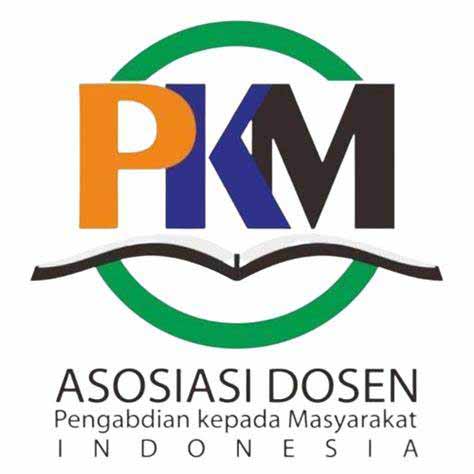Pelatihan Media Pembelajaran Berbasis Artificial Intelligence Sebagai Media Penunjang Pembelajaran Madrasah Aliyah Nurul Islam Mandastana
DOI:
https://doi.org/10.63935/gr.v2i3.201Keywords:
Artificial Intelligence, teacher competency, digital learning, community serviceAbstract
The transformation of learning systems due to the Coronavirus Disease 2019 (Covid-19) pandemic has pushed educational institutions to adopt digital technologies, including Artificial Intelligence (AI). However, not all educators particularly in madrasahs have the necessary understanding and skills to utilize AI as a learning medium. This community service program aimed to enhance the competencies of teachers at Madrasah Aliyah Nurul Islam Mandastana in understanding and implementing AI-based learning tools. The method used was Participatory Action Research (PAR), consisting of three main stages: socialization, training and mentoring, and independent practice. Evaluation was carried out using pre-tests and post-tests, as well as direct observation. The results indicated a significant improvement in participants’ competencies, with an average increase of 55,10%. Additionally, the program led to positive changes in teaching approaches, improved student motivation, and enhanced accessibility to learning materials. In conclusion, the AI-based training successfully addressed the technological competency gap among teachers and contributed positively to the madrasah’s teaching and learning practices.
Downloads
References
Alia, A., & Siagian, H. (2020). Integrasi teknologi informasi dalam pembelajaran abad 21. Jurnal Pendidikan Indonesia, 9(2), 115–124.
Black, S., Smith, D., & Karim, M. (2024). Teacher readiness for AI integration in education: A global perspective. International Journal of Educational Technology, 16(1), 45–58.
Chen, X., Xie, H., Zou, D., & Hwang, G. J. (2020). Application and theory gaps during the rise of Artificial Intelligence in education. Computers and Education: Artificial Intelligence, 1, 100002.
Dewan Perwakilan Rakyat Indonesia. (2005). Undang-Undang Republik Indonesia Nomor 14 Tahun 2005 tentang Guru dan Dosen. Jakarta: DPR RI.
Hajar, S. (2024). Digital pedagogi dan masa depan pendidikan. Bandung: Remaja Rosdakarya.
Hariyanto, D., Lestari, I., & Yuliana, N. (2020). Digital literacy di kalangan guru madrasah. Jurnal Madrasah Digital, 4(1), 33–41.
Holmes, W., Bialik, M., & Fadel, C. (2019). Artificial Intelligence in education: Promises and implications for teaching and learning. Boston: Center for Curriculum Redesign.
Luckin, R., Holmes, W., Griffiths, M., & Forcier, L. B. (2016). Intelligence unleashed: An argument for AI in education. Pearson Education.
Nurcahyani, S., Wibowo, H., & Maulidina, M. (2024). AI-based learning tools untuk pembelajaran personalisasi. Jurnal Teknologi Pendidikan, 12(1), 55–68.
Qudsi, N., Fauziah, N., & Rahmat, A. (2024). Dampak pandemi Covid-19 terhadap transformasi pembelajaran digital di Indonesia. Jurnal Pendidikan Digital, 5(1), 12–21.
Rachmadtullah, R., Syaodih, E., & Zulela, M. S. (2020). The role of AI in the transformation of education in Indonesia. International Journal of Emerging Technologies in Learning (iJET), 15(5), 108–120.
Reina-Parrado, J., Torres-Sospedra, J., & Segarra, J. (2025). AI literacy among secondary teachers in developing countries. Computers & Education: Artificial Intelligence, 2, 100028.
Riani, S., Sutrisno, H., & Wahyuni, A. (2025). Transformasi pendidikan digital pasca pandemi. Jurnal Inovasi Pendidikan, 13(2), 74–85.
Soedijarto. (2008). Pendidikan nasional: Strategi dan kebijakan. Jakarta: PT RajaGrafindo Persada.
Susilana, R., & Riyana, C. (2021). Teknologi pembelajaran. Bandung: CV Alfabeta.
U.S. Department of Education. (2023). Artificial Intelligence and the future of teaching and learning: Insights and recommendations. Washington, D.C.
Zawacki-Richter, O., Marín, V. I., Bond, M., & Gouverneur, F. (2019). Systematic review of research on Artificial Intelligence applications in higher education – where are the educators? International Journal of Educational Technology in Higher Education, 16(1), 1–27. https://doi.org/10.1186/s41239-019-0171-0
Downloads
Published
Issue
Section
License
Copyright (c) 2025 Erfan Karyadiputra, Agus Setiawan (Author)

This work is licensed under a Creative Commons Attribution-ShareAlike 4.0 International License.













